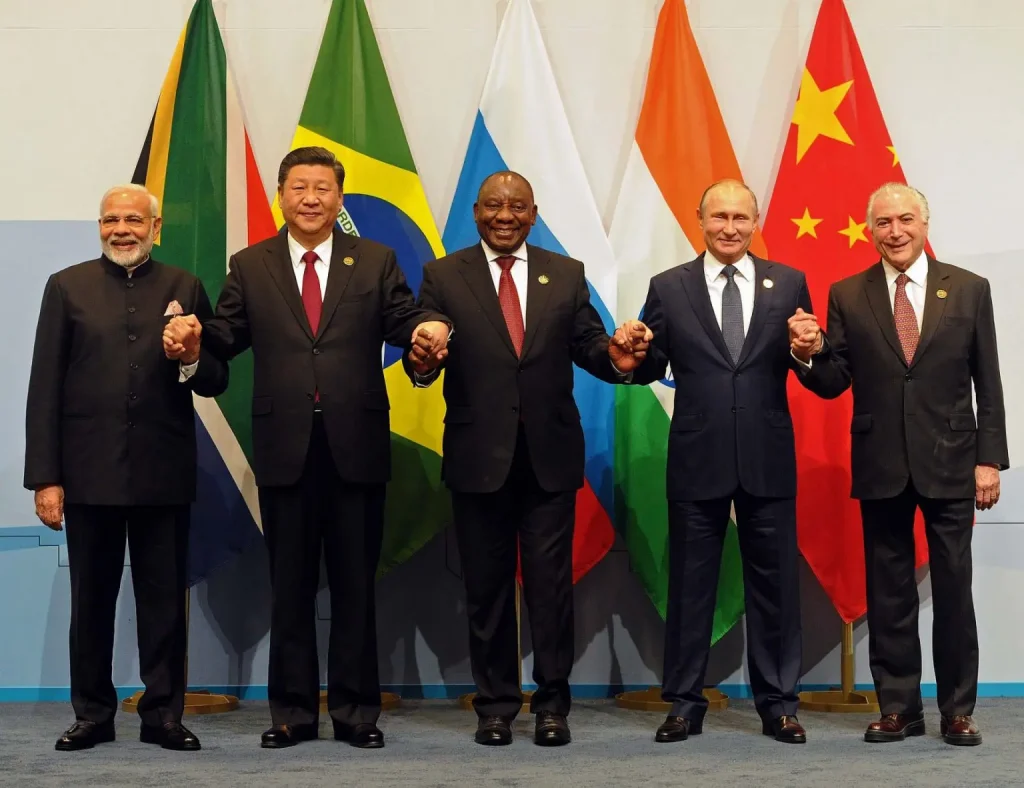BRICS: Turkey Submits Application to Join Alliance
Turkey (Türkiye) formally applied to join the BRICS nations, aiming to increase its global influence and establish new connections beyond its traditional NATO Western allies, according to sources familiar with the situation.
President Recep Tayyip Erdogan’s administration sees a shift in the geopolitical center of gravity away from the current developed economies. Turkey’s decision to apply for BRICS is due to wanting to remain neutral, while keeping its commitments as a key member of NATO.
Secret Application and Geopolitical Tensions
Standing with both Europe and Asia, Turkey secretly submitted its application to join BRICS several months ago, Bloomberg reported. This move comes amid growing frustration over the lack of progress in its decades-old quest to join the European Union. Additionally, tensions with fellow NATO members have risen after Turkey maintained close ties with Russia, following the 2022 Russia-Ukraine war.
“Turkey can become a strong, prosperous, prestigious, and effective country if it improves its relations with both the East and the West simultaneously,” Erdogan stated in Istanbul over the weekend.

BRICS, currently comprising Brazil, Russia, India, China, and South Africa, represents some of the world’s largest emerging economies. Earlier this year, the group expanded to include Iran, the United Arab Emirates, Ethiopia, and Egypt. Saudi Arabia has been invited to join, though it has not yet done so.
The possibility of further expansion will likely be discussed at an upcoming summit in Kazan, Russia, scheduled for October 22-24, according to sources. Malaysia, Thailand, and Azerbaijan, which is Turkey’s close ally, are among other countries considering joining BRICS.
BRICS as an Alternative to Western Institutions
BRICS positions itself as an alternative to Western-dominated institutions such as the World Bank and the International Monetary Fund. Membership offers potential access to financing through its development bank and opportunities to broaden political and trade relationships.
Erdogan’s ruling Justice and Development Party has frequently accused Western nations of impeding Turkey’s aspirations for a self-sufficient defense industry and a robust economy. Erdogan has consistently advocated for reform of the United Nations Security Council to expand its five permanent members and has expressed interest in joining the Shanghai Cooperation Organization, founded by Russia and China as a counterbalance to NATO.
Also Read: BRICS Bank Officially Authorizes a New Country To Join the Ranks
“We do not have to choose between the European Union and the Shanghai Cooperation Organization as some people claim, on the contrary, we must develop our relations with both these and other organizations on a win-win basis” Erdogan asserted.
Turkey’s EU Negotiations and Economic Strategy
Turkey has been negotiating to join the EU for over a decade, but has faced several obstacles, including concerns over the country’s “democratic practices.” By joining BRICS, Turkey hopes to enhance economic cooperation with Russia and China and serve as a trade bridge between the EU and Asia.
Turkey is still trying to restart its EU membership talks according to Turkey’s Foreign Minister. He reiterated this last week after participating in discussions with EU counterparts for the first time in five years. It also aims to be a hub for gas exports from Russia and Central Asia.
Erdogan’s administration has also been trying to attract investment from Chinese electric carmakers, potentially leveraging Turkey’s customs union with the EU to enhance market access.

 Turkey officially submits application requesting to join BRICS. pic.twitter.com/zDDzNnTEbr
Turkey officially submits application requesting to join BRICS. pic.twitter.com/zDDzNnTEbr